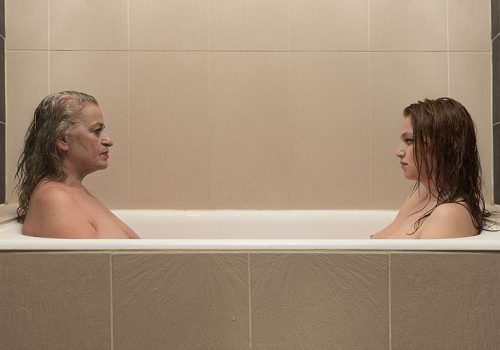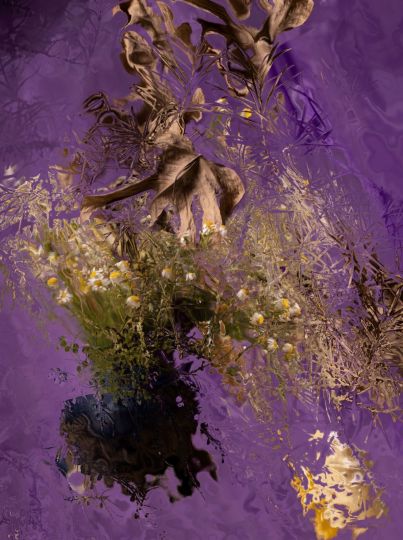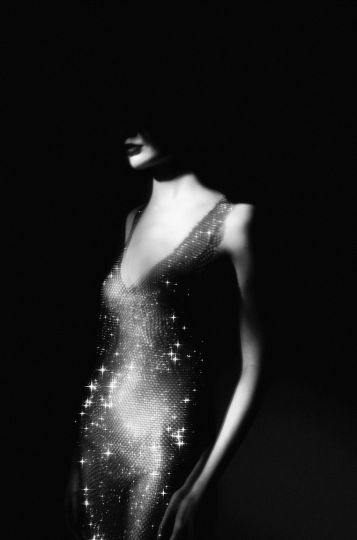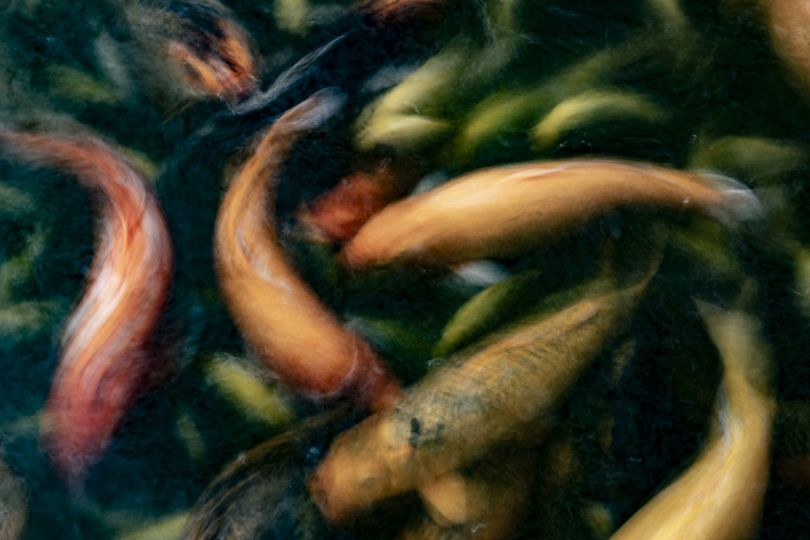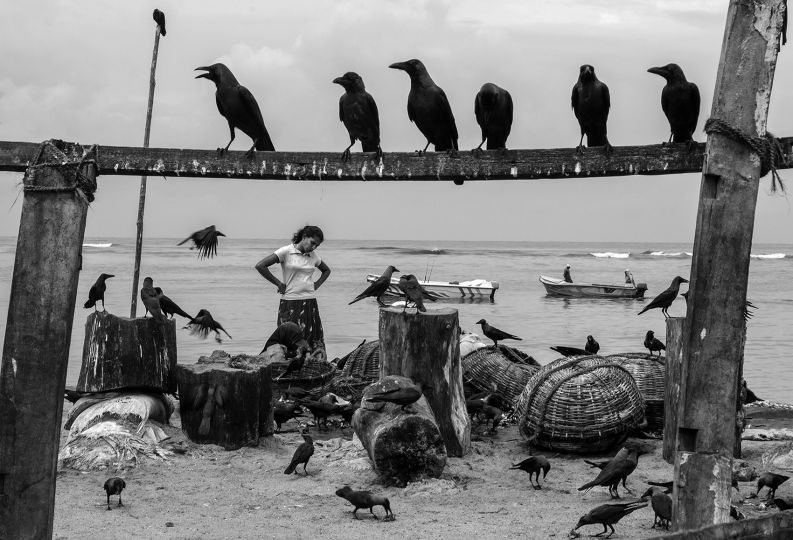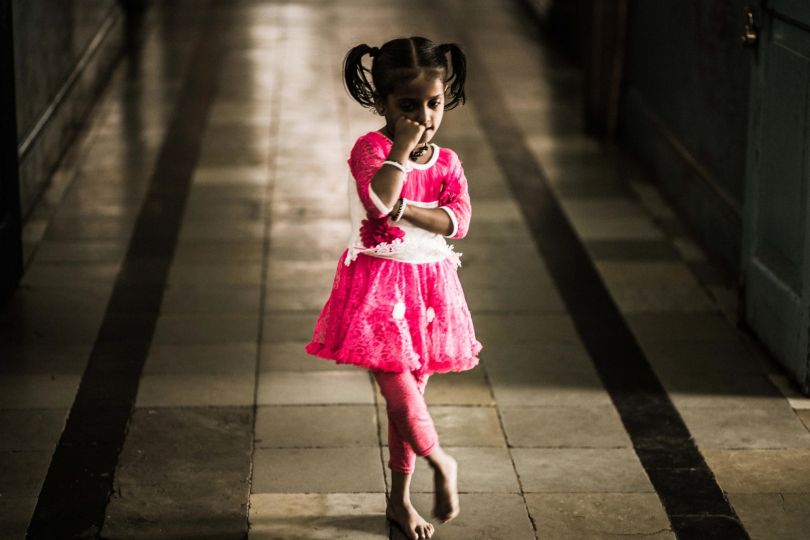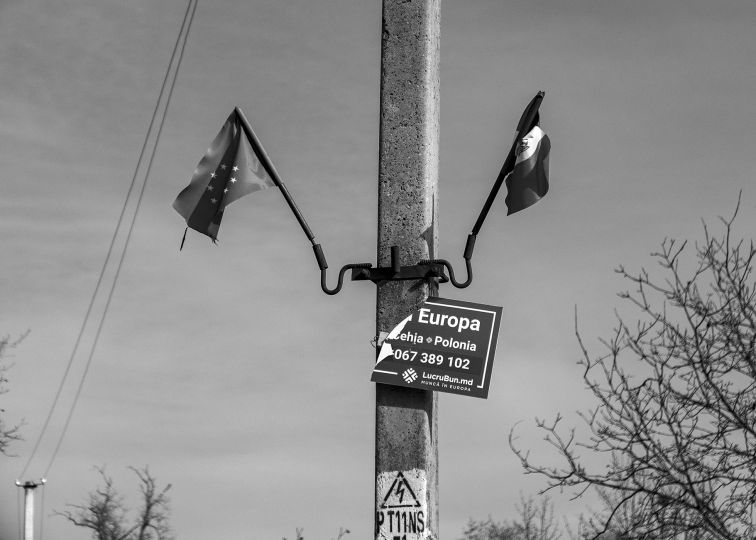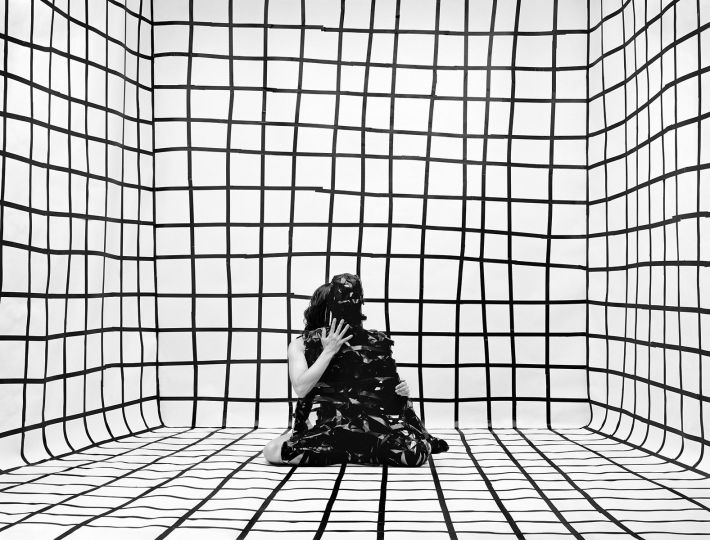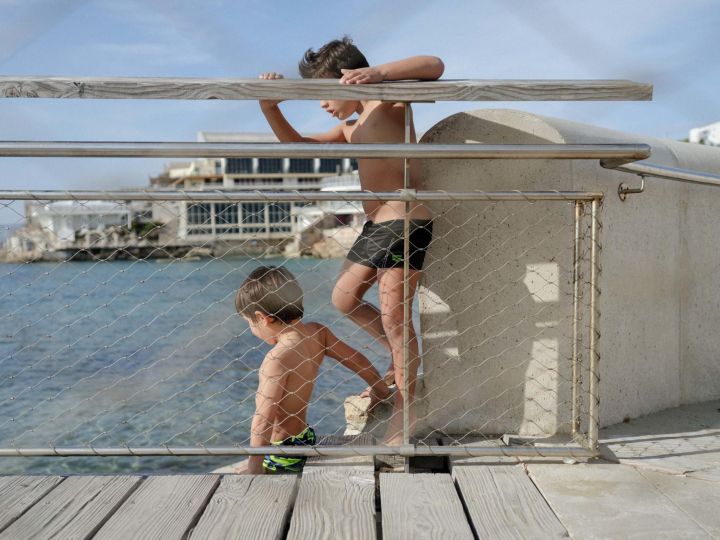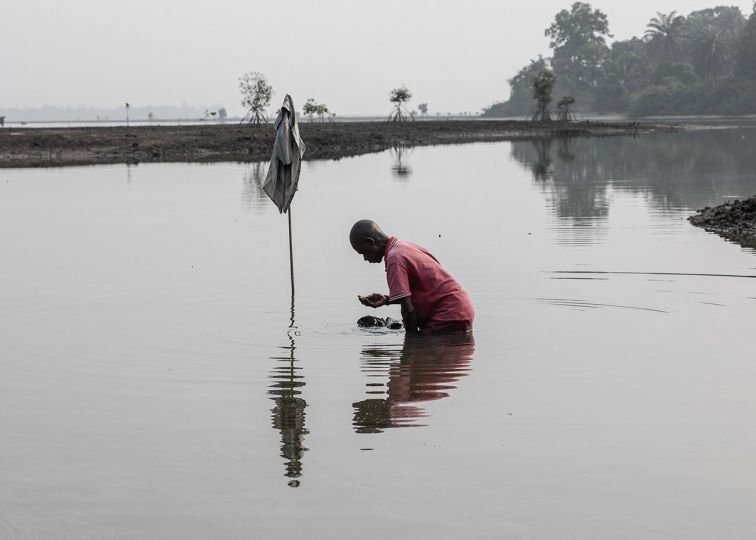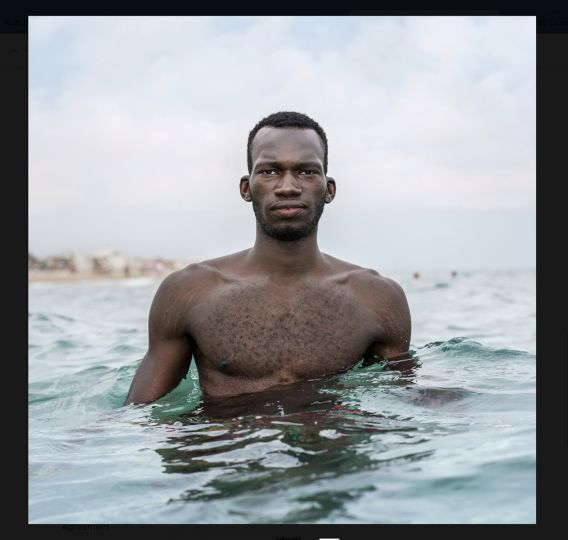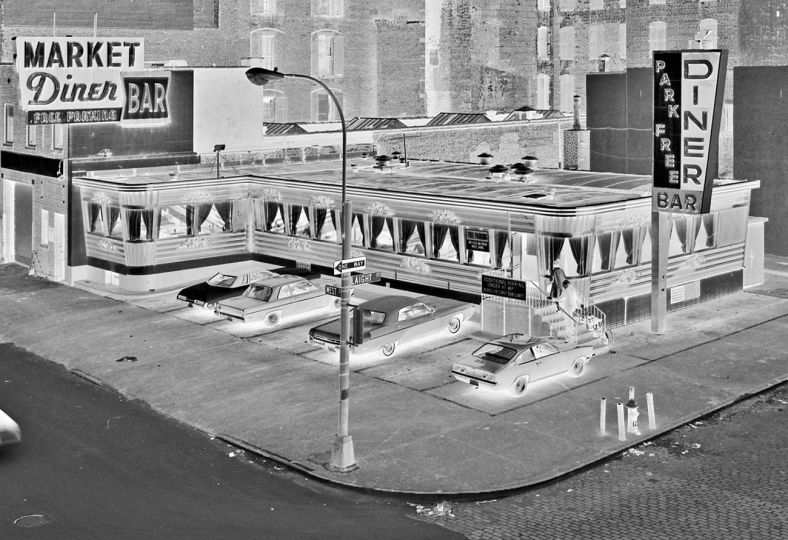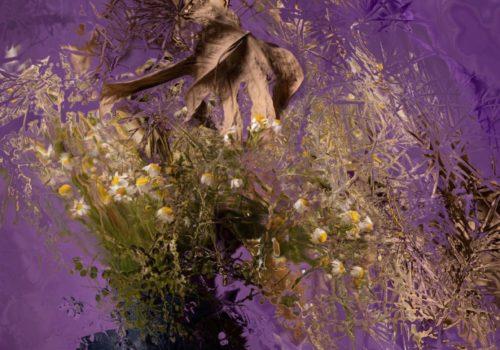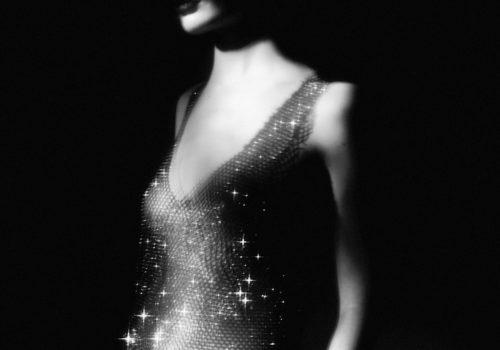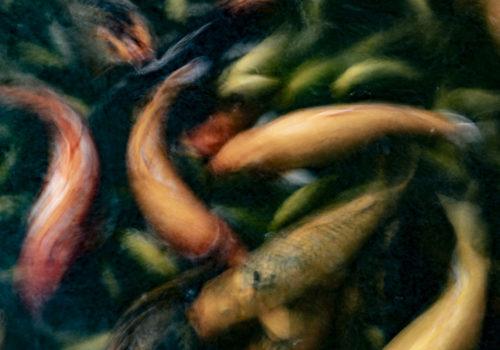Anna and Nobody knows by Dominique Wildermann
In the photographic series respectively entitled Anna and Nobody Knows, Dominique Wildermann offers two unique ways to approach the portrait. The first recreates the daily life of an absent person, perhaps deceased, the second selects some expressions from the countless aspects of an extraordinary persona. Between the lack and the excess of the model’s presence, the photographer delineates the constraints of the portrait.
Anna depicts a haunting. This name is that of the former tenant of the apartment where the photographer has been living for a few years. Anna lived there alone for thirty years after the death of her loved one. The pictures in this empty place show the imprints left on the walls by an accumulation of frames that were the memories that surrounded the old lady. Feeling strangely close, and perhaps to ward off such a sad fate in this place, Dominique Wildermann undertakes the portrait of this stranger. She plays the character of a young Anna by matching her presence with that of a model thirty years her senior.
This age difference captures the length of time of a loneliness, a slice of life in which the two actresses repeat daily actions. Behind the window, the young Anna is looking outside daydreaming, while the other, her face tormented by an endless wait, turns her gaze inward. They smoke a cigarette side by side, put make up on at the same time in front of a mirror, find themselves at opposite ends in the bathtub and each of the scenes where they appear together testifies that the time has frozen the postures so far as to transform this living area in a haven of repetition.
Anna’s portrait, the absent, is based on a duplication sequence: the main character is embodied by a pair of extras. Dominique Wildermann, haunted by this story, unfolds in turn in an amazing series that became her autofiction.
The title of the series Nobody knows indicates the difficulty of drawing the portrait of a character with protean features. If the art of portrait consists in revealing the psychology of a person, in the tradition inaugurated by Nadar, one begins to discover Fred, Dominique Wildermann’s model, only by following the multiplicity offered by a series. It is Fred who invents the outbursts of her personality; it is the photographer who, by her aesthetic choices, is able to bring to light the character’s manifestation. Fred becomes at any given moment what she decides to be, and dresses up as a diva, panther woman, rogue or mohawk. The series also offers some images of the small two-room apartment where Fred dwells as a recluse and has succeeded, over the years, in establishing the finest form of exuberance: one discovers an accumulation of unusual objects or superimposed hangings on the walls, especially those she did not cover with graffiti. In the collection of a whimsical psyche’s outpourings, the photographer gives us access to the paradox of the reality of a fiction and all her art is to share with us the story of a woman, insatiable creator of multiple selves.
Robert PUJADE
Senior lecturer in aesthetics,
Permanent member of the Rencontres d’Arles
Exposition photographique 22.01 au 25.02 2019
Inauguration le mardi 22 janvier 2019 en présence de l’artiste
18h00 Enssib l18h30 Galerie Domus
ENSSIB
ÉCOLE NATIONALE
SUPÉRIEURE
DES SCIENCES DE
L’INFORMATION
ET DES BIBLIOTHÈQUES
17-21, bd du 11 novembre 1918
69100 Villeurbanne
Tél. 04 72 44 43 43
www.enssib.fr/exposition
Ouvert du lundi au vendredi
de 8 h à 20 h
Tram : T1, T4 (Université Lyon 1)
Bus : C2, 70 (Rossellini)
Station Vélov : Parc Tête d’Or /
Stalingrad ou Rossellini /
11 novembre
GALERIE
DOMUS
UNIVERSITÉ
CLAUDE BERNARD LYON 1
31, avenue Pierre de Coubertin
69100 Villeurbanne
Tél. 04 72 43 19 11
galeriedomus.univ-lyon1.fr
Ouvert du lundi au vendredi
de 11h15 à 14h
et sur rendez-vous
Tram : T1, T4 (Université Lyon 1)
Bus : C2, 70 (Rossellini)
Station Vélov : Parc Tête d’or /
Stalingrad ou Rossellini /
11 novembre
Accès parking sur demande à

